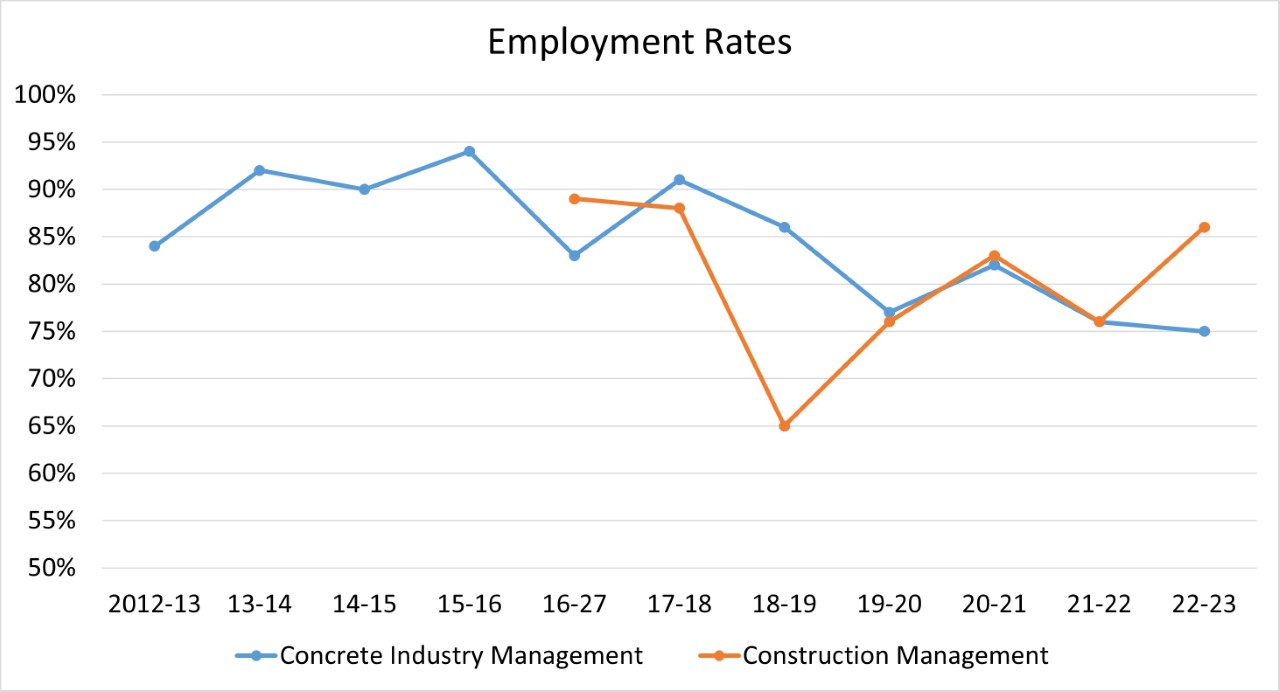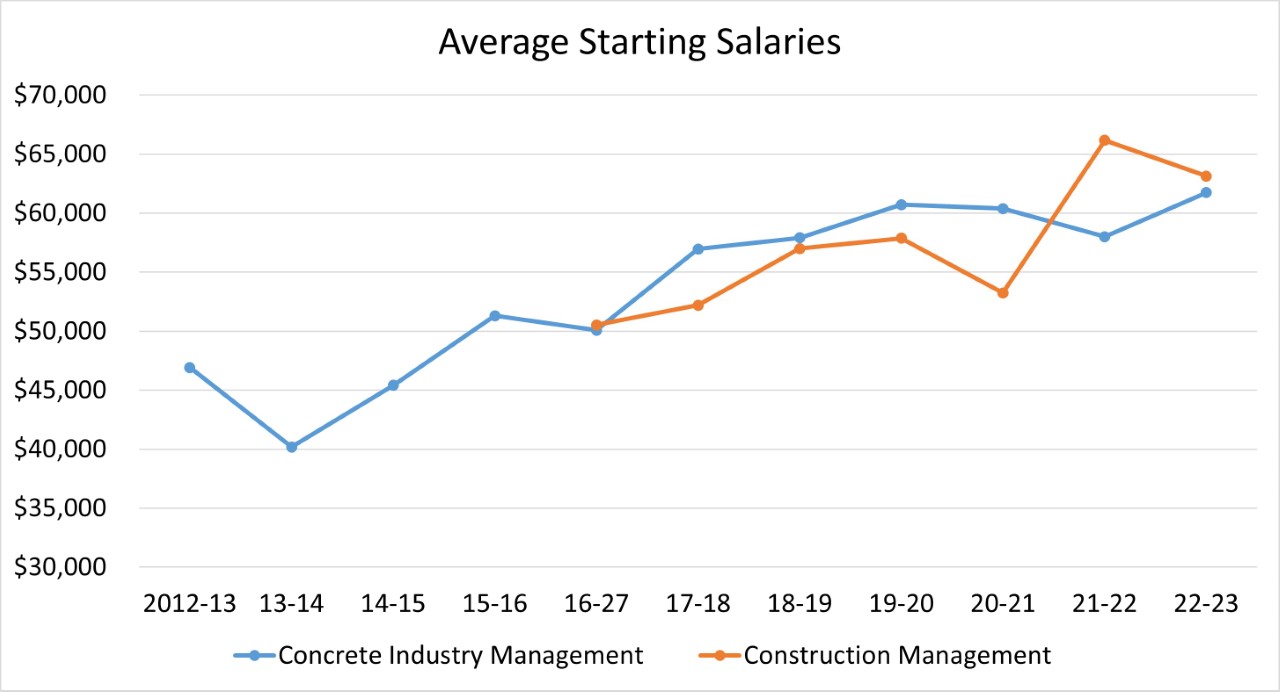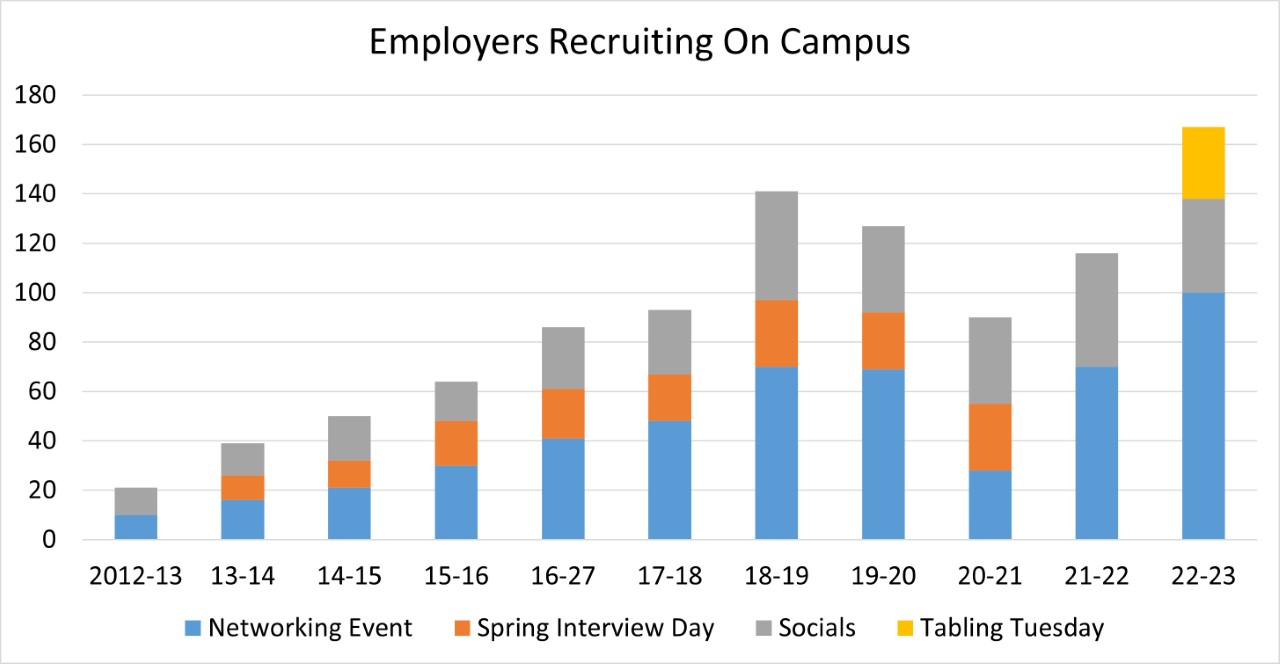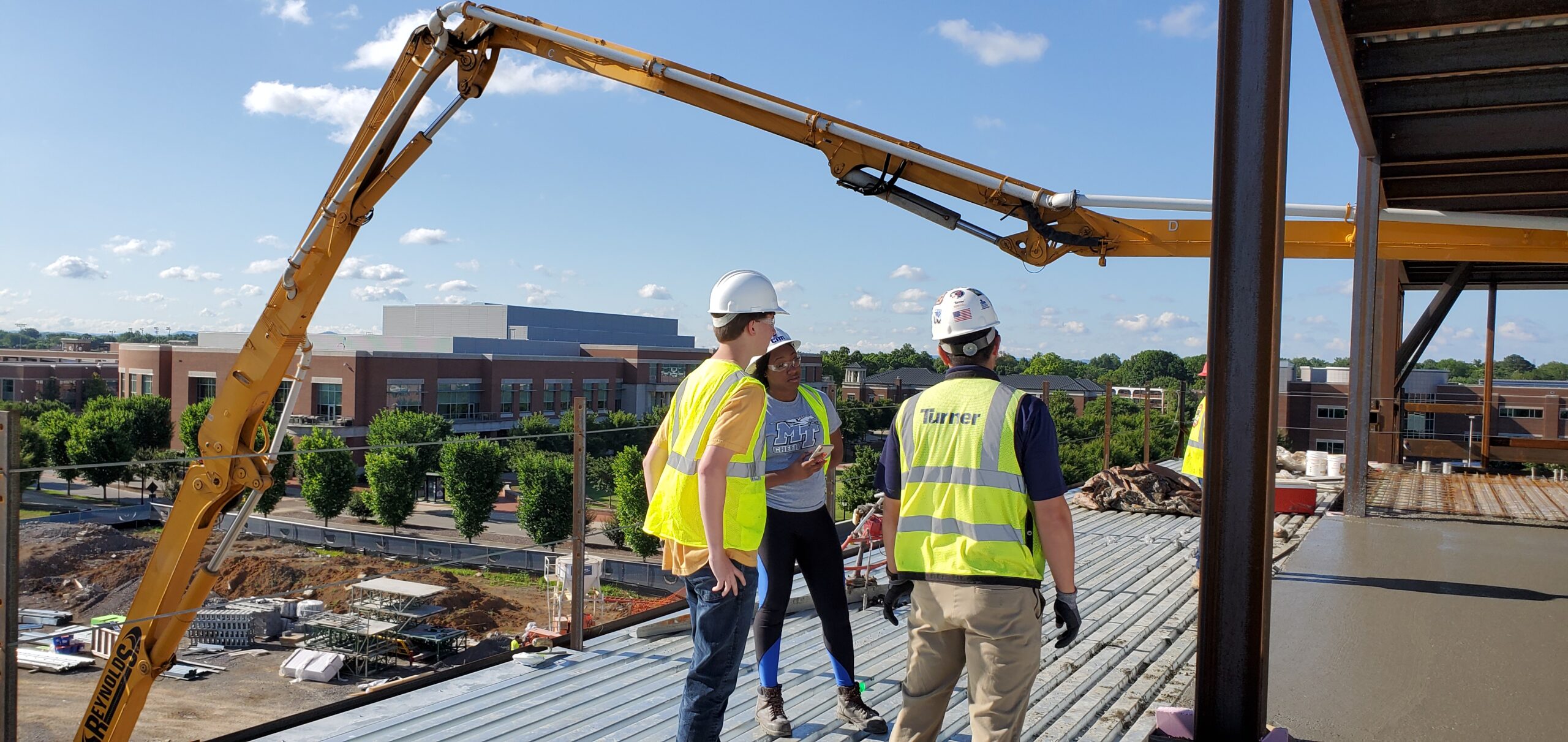
Construction Management
The Construction Management Commercial concentration offers hands-on skills for complex building projects.
Construction Management, Commercial Construction Management Concentration, B.S.
Students in MTSU's Commercial Construction Management concentration within the Bachelor of Science- Construction Management program get hands-on experience in the field and in the classroom.
Students learn the wide range of skills it takes to provide complex buildings and related infrastructure such as medical facilities, educational facilities, sports facilities, office buildings, and more by learning the technology and leadership skills needed in the commercial sector of the Construction industry. MTSU's School of Concrete and Construction Management building features learning labs, classroom space, computer labs with Building Information Modeling software and project management platforms, an amphitheater, and more.
If you live in one of these states: AL AR DE GA KY LA MD MS SC VA WV; you may be able to attend MTSU at in-state rates under the Academic Common Market program.
News Briefs
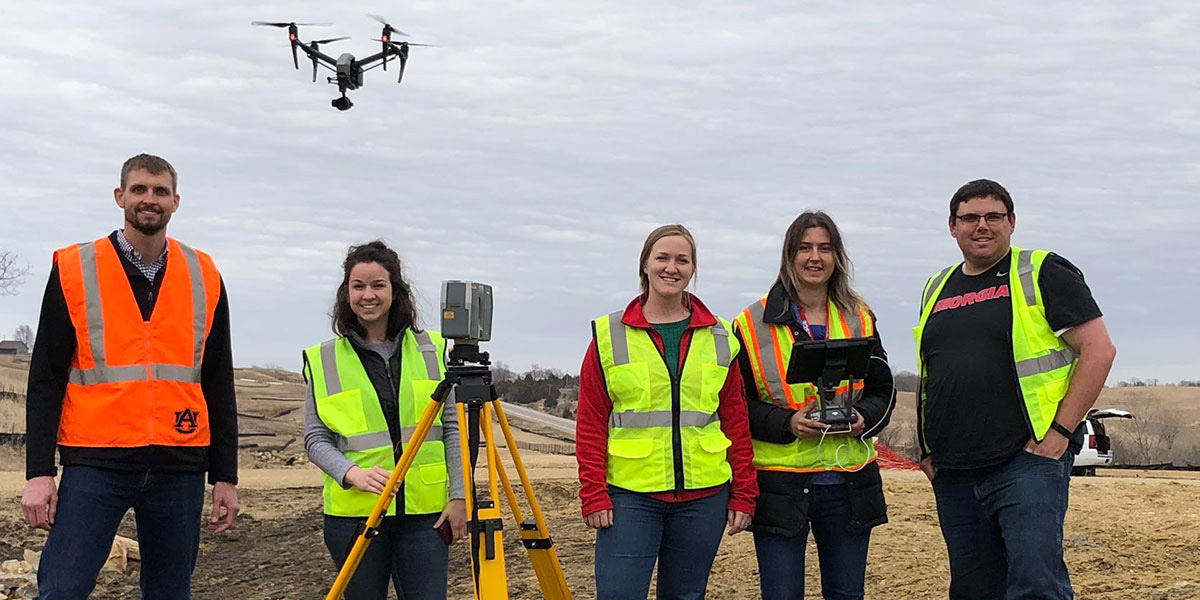
Professor strives to guide students by example
Dr. Blake Whitman believes the most critical role he can demonstrate to his students is that of a leader. "If I lead by example - being punctual, organized, and professional - I have the innate ability to enlighten, motivate, and encourage students to accomplish extraordinary feats to solve real-world problems. I strive to guide students through their college experience and help them prepare for their future endeavors," he said. He also focuses on mentoring and helping students develop critical thinking skills that provide practical solutions in the construction industry. "To keep pace with an ever-evolving construction industry, my primary objective is to instill a desire for life-long learning and development in each student," he said. "My goal is not for students to memorize answers, but rather developed a problem-solving mentality that allows them to confidently approach problems, assess situations, and develop practical solutions."
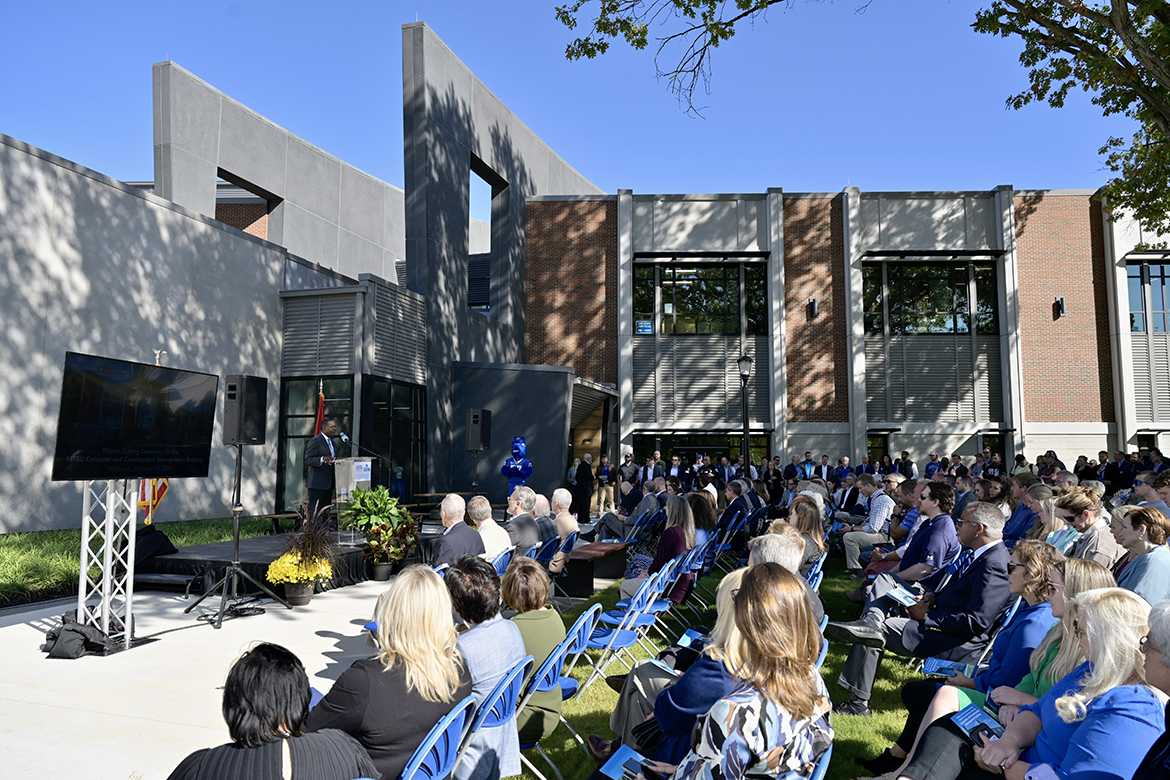
MTSU Unveils $40.1M Integrated Learning Concrete, Construction Building
Middle Tennessee State University officials cut the ribbon Thursday, Oct. 13, to officially open the new $40.1 million School of Concrete and Construction Management Building students just began utilizing on the west side of campus as they prepare for professional careers in a high-demand sector throughout the Midstate and beyond.
News Briefs
Professor strives to guide students by example

Dr. Blake Whitman believes the most critical role he can demonstrate to his students is that of a leader. "If I lead by example - being punctual, organized, and professional - I have the innate ability to enlighten, motivate, and encourage students to accomplish extraordinary feats to solve real-world problems. I strive to guide students through their college experience and help them prepare for their future endeavors," he said. He also focuses on mentoring and helping students develop critical thinking skills that provide practical solutions in the construction industry. "To keep pace with an ever-evolving construction industry, my primary objective is to instill a desire for life-long learning and development in each student," he said. "My goal is not for students to memorize answers, but rather developed a problem-solving mentality that allows them to confidently approach problems, assess situations, and develop practical solutions."
MTSU Unveils $40.1M Integrated Learning Concrete, Construction Building

Middle Tennessee State University officials cut the ribbon Thursday, Oct. 13, to officially open the new $40.1 million School of Concrete and Construction Management Building students just began utilizing on the west side of campus as they prepare for professional careers in a high-demand sector throughout the Midstate and beyond.
Related Media

A degree in the Commercial Construction Management concentration within the Bachelor of Science program in Construction Management prepares students for entry-level careers in the commercial construction sector of the construction industry. Examples include:
- Architectural Coordinator
- Building Inspector
- Construction Manager
- Estimator
- Industrial and Technical Sales
- Historical Restoration
- Home Builder
- Project Coordinator
- Project Engineer
- Software Success Manager
- Superintendent
- Virtual Design and Construction Manager
Employers of recent MTSU grads include:
- Al. Neyer
- Barton-Malow Builders
- Beazer Homes
- Clark Construction
- David Weekly Homes
- Davidson Homes
- Doster Construction
- Elite Concepts and Design
- Hat Creek Construction
- Hemma Concrete
- Hensel Phelps
- James McHugh Construction
- Jarrett Companies
- Layton Construction
- Legacy Concrete
- PASKR/REDTEAM Software
- Spivey Custom Homes
- Suffolk Construction
- TDK Construction
- Turner Construction




CONTACT US
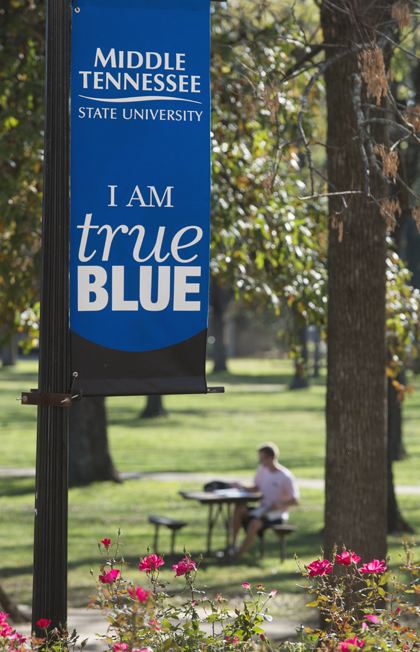
Please fill in the form below and we will contact you very soon













